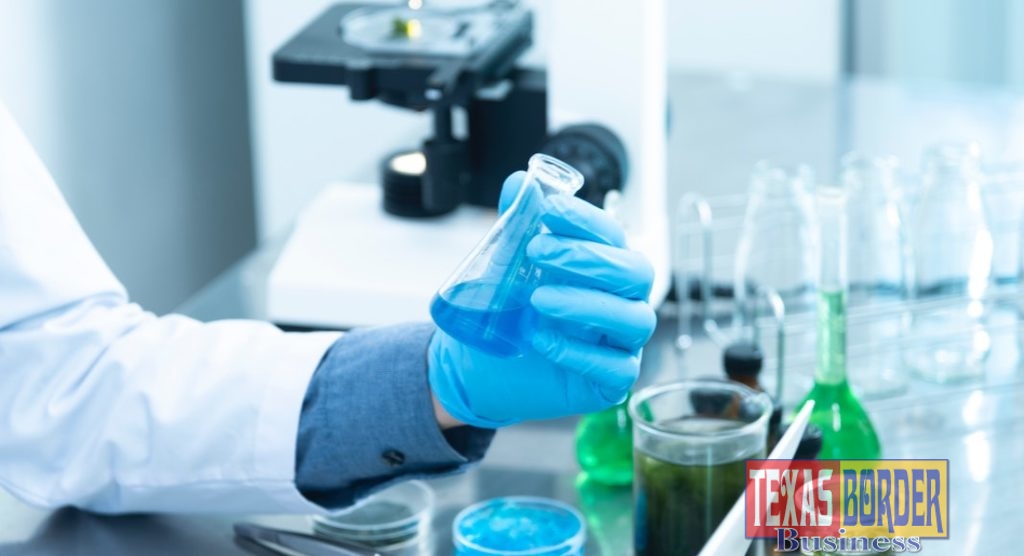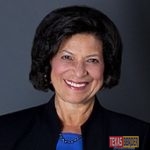
Texas Border Business

By Marilyn M. Singleton, MD, JD
While on lockdown to save our neighbors from a lonely death from the disease called COVID-19, many of us have turned to movies. I beg you not to rent Pandemic, Contagion, or 28 Days Later. Try Harriet instead. Harriet Tubman was the epitome of bravery and courage in the face of insurmountable odds. Her escape from slavery and returning again and again into the belly of the beast to save others should inspire us all. The health professionals working day and night to care for an ever-increasing number of sick patients make me proud to be a doctor. And kudos to the grocery store workers, postal workers, police and many others who are performing essential jobs with a smile.
This is the time for positive action, not panic. For background, coronaviruses are a big family of RNA viruses named for the crown-like spikes found on their surface. They exist around the world cause mostly upper respiratory tract infections (“common colds”) in adults. This new coronavirus is in the same family as the Severe Acute Respiratory Syndrome coronavirus (SARS-CoV) identified in humans in 2002 and the Middle East Respiratory Syndrome coronavirus (MERS-CoV) identified in 2012. The COVID-19 virus is called SARS-CoV-2 for its similarity to SARS-CoV.
While scientists are furiously experimenting with possible vaccines, the virus is sprinting from country to country despite travel restrictions. There are likely among us “healthy carriers” of the virus who have no signs or symptoms of the disease but can infect others. So if CoViD-19 is here for a while, the world has to look to effective treatments of afflicted individuals today – not a year from now. Some researchers seem to have found a strong contender.
Separate studies from a major medical center in France and jointly from South Korea and China have found that inexpensive, readily available anti-malarial drugs chloroquine phosphate or hydroxychloroquine are an effective treatment. But the Federal Drug Administration (FDA) is dragging its feet despite the President’s urgings approve the drug for anti-viral use. Dr. Anthony Fauci, the director of the National Institute of Allergy and Infectious Diseases and the White House’s advisor has dismissively called the studies “anecdotal” meaning “based on or consisting of reports or observations of usually unscientific observers.”
In 2004, separately a Belgian virologist and our Centers for Disease Control and Prevention found that chloroquine inhibited SARS-CoV growth in primate cells when given before or after exposure to the virus. Human trials could not be done because thankfully the SARS epidemic had just ended. Fast forward to February 2019. In South Korea, these drugs were given by physicians and scientists in the COVID-19 Central Clinical Task Force. These studies showed a “certain curative effect” with “fairly good efficacy.” Further, patients treated with chloroquine demonstrated a better drop in fever, improvement of lung CT scan images, and required a shorter time to recover compared to parallel groups.
More promising is a study of 36 patients actively ill from CoViD-19 by a noted research team from France. Of the 20 patients treated with hydroxychloroquine alone, 70 percent had no detectable virus within 6 days; those treated with hydroxychloroquine and azithromycin (an antibiotic with some anti-viral action) had a 100 percent success rate. Yes, the study is small, but these are extraordinary times.
On March 22, Gov. Cuomo announced that the FDA is allowing New York state to start a trial of hydroxychloroquine and azithromycin. Let’s move on to this!
Chloroquine and hydroxychloroquine are approved by the FDA for malaria, rheumatoid arthritis, and systemic lupus erythematosus. The FDA is well aware that physicians prescribe plenty of drugs that are “off label,” which are drugs approved by the FDA for other conditions. Indeed, one-fifth of all prescriptions are off label. For example, aspirin was approved for pain relief but had many years of off-label success for the prevention of heart attacks before the FDA finally approved the off-label use.
Mike Tyson said, “we all have a plan until we are punched in the face.” FDA’s “plan” is to regulate products and promote safe and effective drugs. This is the FDA’s moment to bravely keep us safe by shifting gears and deregulating a valuable product. Pharmacists must be allowed to fill such prescriptions. Let doctors do what they do best: use their independent judgment. Let physicians consult with their patients and let them choose to take the off-label medicine, or approved anti-viral medicines that have failed against CoViD-19 in studies—or no treatment at all.
While people are struggling to pay for their next meal, we need bold action now. For 6 billion dollars all Americans could be treated—saving hundreds of billions of dollars in lost income and retirement savings.
Bayer began by donating 3 million tablets to our government. More companies are stepping up. Novartis has pledged a global donation of up to 130 million hydroxychloroquine tablets, pending regulatory approvals for COVID-19. Mylan is increasing production in West Virginia to make 50 million tablets Teva is donating 6 million tablets to hospitals around the U.S. For context, each patient treatment would use up to14 tablets.
Do your job, FDA and protect the public. Approve hydroxychloroquine now for CoViD-19. Meanwhile, physicians may legally prescribe these drugs because they are approved for other indications.
Dr. Singleton is a board-certified anesthesiologist. She is the immediate past President of the Association of American Physicians and Surgeons (AAPS). She graduated from Stanford and earned her MD at UCSF Medical School. Dr. Singleton completed 2 years of Surgery residency at UCSF, then her Anesthesia residency at Harvard’s Beth Israel Hospital. While still working in the operating room, she attended UC Berkeley Law School, focusing on constitutional law and administrative law. She interned at the National Health Law Project and practiced insurance and health law. She teaches classes in the recognition of elder abuse and constitutional law for non-lawyers. She lives in Oakland, Ca.















